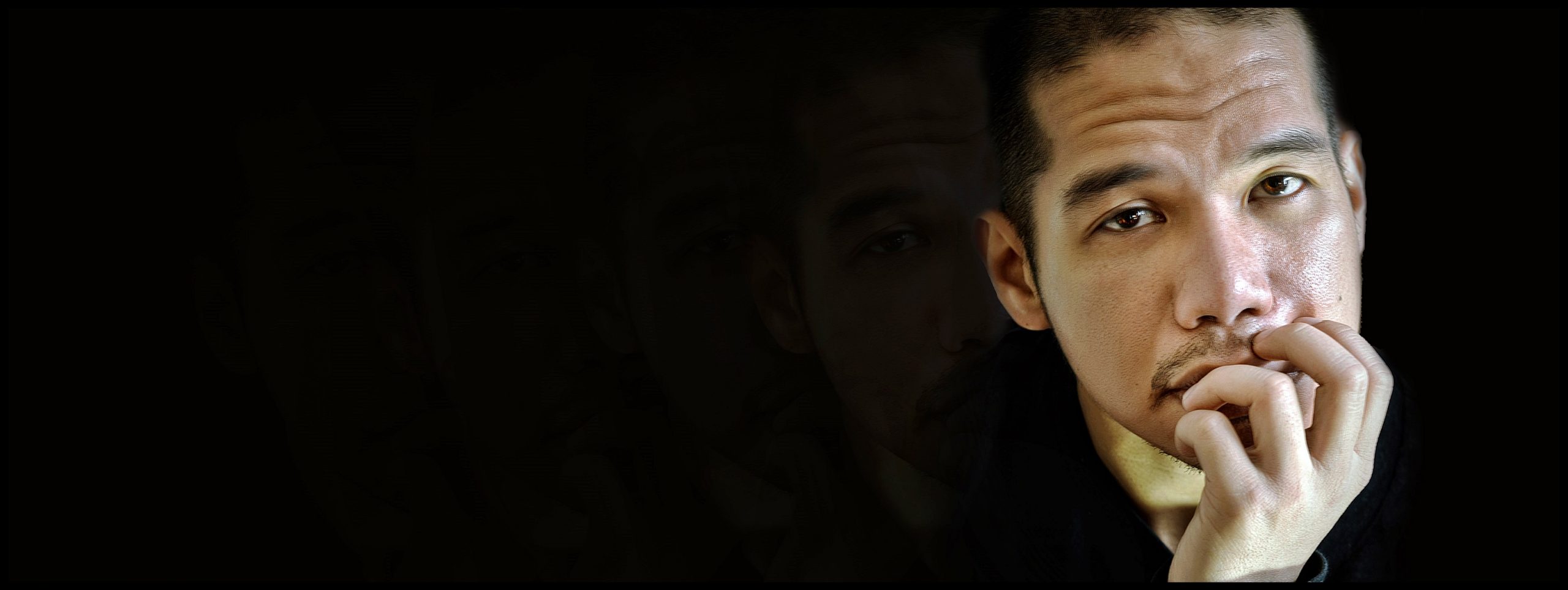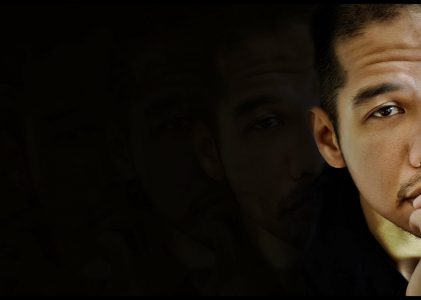LIFE OF PI
Roars of the whispering ocean: A review
After a twelve hours hospital work in cardiac and oncologic ward, I think I deserved a treat to myself: sipping an icy soda in a breezy restaurant by the Thames Riverside with my semi-trembling feet resting on the cushioned seat and circling my neck as i listened to Donny Hathaway’s classic. That was the original idea. I ended up instead, in a Cineworld, Troccadero, with the large tumbler size popcorn (hardly touched) and crampled tear-soaked tissues on my other hand. Yes, blame Ang Lee of LIFE OF PI, for making me sobbed like a demure sixteen year old girl who just bade goodbye to her first love.
WHAT’S WITH THE TEAR-SOAKED TISSUES?
Based on the best-selling novel by Yann Martel, is a magical adventure story centering on Pi Patel,the precocious son of a zoo keeper, in which in my thirty-two years of life i have an ample amount of pride to say that Pi and i share the same failures, sentiments, struggles and triumph in search of contentment and truth in life. Dwellers in Pondicherry, India, the family decides to move to Canada, hitching a ride on a huge freighter. After a shipwreck, Pi finds himself adrift in the Pacific Ocean on a 26-foot lifeboat with a zebra, a hyena, an orangutan and a 450-pound Bengal tiger named Richard Parker, all fighting for survival.
Pi Patel(Irrfan Khan), an immigrant from Pondicherry in India living in Montreal, Canada, is approached by a local novelist (Rafe Spall) who has been referred to him by his “uncle” (a family friend), believing that Pi’s life story would make a great book. Pi relates an extended tale:
His parents had named him Piscine Molitor after a swimming pool in France. He changes his name to “Pi” (the mathematical symbol, ) when he begins secondary school(Gautam Belur), even repeating numerous digits of pi, because he is tired of being taunted with the nickname “Pissing Patel”. His family owns a local zoo, and Pi takes an interest in the animals, especially a Bengal tiger named Richard Parker because of a clerical error. Pi tries to feed the tiger, endangering himself to being attacked, and to teach him the reality of the tiger’s nature as a carnivore, Pi’s father(Adil Hussain) forces him to witness it killing a goat. He is raised Hindu and vegetarian, but at 12 years old, he is introduced to Christianity and then Islam, and starts to follow all three religions as he “just wants to love God.” When asked if he is also Jewish, he replies that he lectures in Kabbalah at the university.
When Pi is 16(Ayush Tandon), his father decides to close the zoo and move his family to Canada, and sell the zoo animals, to ensure a good future for his children. They book passage with their animals (to be sold in North America) on a Japanese freighter named the Tsimtsum. On board the ship, Pi’s father gets into an argument with the ship’s cook (Gerard Depardieu) when he speaks to Pi’s mother(Tabu) rudely. One night, the ship encounters a heavy storm and begins to sink while Pi is on deck marveling at the storm. He tries to find his family, but a crew member throws him into a lifeboat; from the rough sea, he watches helplessly as the ship sinks, killing his family and its crew.
After the storm, Pi finds himself in the lifeboat with an injured zebra, and is joined by an orangutan who lost her offspring in the shipwreck. A spotted hyena emerges from the tarp covering half of the boat, and kills the zebra. To Pi’s distress, the hyena also mortally wounds the orangutan in a fight. Suddenly Richard Parker emerges from under the tarp, and kills and eats the hyena.
Pi finds emergency food and water rations on the boat. He builds a small raft of flotation devices so that he can stay at a safe distance from the tiger. Realizing that he must feed the tiger to protect himself, Pi begins fishing, with some success. He also collects rain water for both to drink. At one point, he makes a board ladder for the tiger to climb back into the boat after it had jumped off to hunt fish. In a nighttime encounter with a breaching whale, Pi loses much of his supplies. Faced with starvation, he eats raw fish. After many days at sea, Pi realizes that he can no longer live on the tiny raft and trains the tiger Richard Parker to accept him in the boat. He also realizes that caring for the tiger is keeping him alive.
After weeks longer at sea, near the end of their strength, they reach a floating island of edible plants, supporting a forest, fresh water pools, and a large population of meerkats. Both Pi and Richard Parker eat and drink freely and regain strength. But at night the island transforms into a hostile environment, with the fresh water turning acidic, digesting all the dead fish that died in the pools. The tiger returns to the lifeboat at night. Pi finds a human tooth inside a plant flower and concludes that the plants are carnivorous, requiring them to leave the island.
The lifeboat eventually reaches the coast of Mexico. Finally back on land, Richard Parker stumbles away from Pi and stops at the edge of the jungle. Pi expects that the tiger will turn toward him and acknowledge him, but instead he looks into the jungle for a while and goes in. Pi, too weak to follow, lies in the sand. He is rescued by a group who carry him to hospital, but he weeps that the tiger had walked away without him.
In hospital, insurance agents for the Japanese freighter come to hear his account of the incident. They find his story unbelievable, and ask him to tell them what “really” happened, if only for the credibility of their report. He answers with a less fantastic but detailed account of sharing the lifeboat with his mother, a sailor with a broken leg, and the cook. In this story, the cook kills the sailor to use him as bait and food. In a later struggle, Pi’s mother pushes him to safety on a smaller raft, and the cook stabs her as she falls overboard to the sharks. Later, Pi returns to grab the knife and kills the cook.
In the present, the writer notes parallels between the two stories: the orangutan was Pi’s mother, the zebra was the sailor, the hyena was the cook, and Richard Parker, the tiger, was Pi himself. Pi asks him which story the writer prefers; he chooses the one with the tiger because it “is the better story”, to which Pi responds, “And so it is with God”. Glancing at a copy of the insurance report, the writer notices a closing comment about the remarkable feat of surviving 227 days at sea, especially with a tiger – meaning that the agents chose that story as well.
WHERE THE REALITY AND FANTASY MEETS, AN EYE POPPING
TRUTH:
Since when does a book that’s described as impossible to film and stop Hollywood from pushing ahead with a 120 million dollar adaptation? Well, few renowned-Oscar hunger Directors bravely raised their white flags namely: Night Shyamalan (The 6th Sense), Alfonso Cuaron (Children of Men), and Jean Pierre Jeunet (Alien Resurrection). But enter the humble, nvabout my size, Taiwanese director who after being hailed as Best Director (Oscar 2009) for Brokeback Mountain, shyly claimed only equipped with Faith of oneself and trust to his team especially to David Magee who penned the script that made him accept the almost “un-filmable story”. No one can doubt the technical brilliance of Ang Lee’s new film, an adaptation of Yann Martel’s Booker-winning bestseller from 2001, a widely acclaimed book that I should say I have yet to read. The effects are stunning, more impressive than anything in the new hi-tech Hobbit, and on that score, Peter Jackson can eat his heart out. But for the film itself, despite some lovely images and those eyepopping effects, it is a shallow and self- important shaggy-dog story – or shaggy-tiger story – and I am bemused by the saucer-eyed critical responses it’s been getting.
The digitally created tiger is incredible, or rather, very credible. I expected it to be an obvious CGI beast or uncanny-valley creature. It’s better than that. Every second it was on screen, I thought: that unreal tiger really is mindblowingly real-looking – how did they do that? Well, I suspended my disbelief in good faith – and my skepticism about “magic realism” also – and Lee’s brilliant digital work made that easy. But the adventures of Pi and the tiger are cancelled by an exasperating ending, the crux of which is a question Pi asks Rafe Spall’s writer, and the answer he receives. Both seem founded on some fatuous assumptions. This is an awards-season movie if ever there was one. It deserves every technical prize going.
“OUTCASTED”
The nostalgic introducing scene of a familiar tropical rainforest that silhouetted the “unknown” actors’ name (except for Gerard Diepardieu) made my biased mind wondered, of these unheard names, shall i make a long – straw sipping slurp sound on my drink? for the mediocre acting performance? Shame on you! Hollywood-poisoned brain Martian https://carlosmapano.com/wp-content/uploads/2019/11/caloi-cover-scaled-1.jpg…it was jaw-dropping brilliant, true-to-life exemplary performance. The big catch in there, was that the teenager Pi played by Suraj Sharma. A zero acting/performance who just happened to accompany his younger brother in over 3,000 auditionees in New Delhi. Journey maybe the prelude for the one’s destiny’s overture, but such an inspiring to consider that this genuinely shy Philosophy student delivered such a pure and untainted authentic performance who just tried to smile in a long-zigzagging queue until Ang spotted it. Also,I must say that Ann Kauffman, the casting director has swallowed a pill of Hollywood antidote for the “botox-silicone-obsessed” castings. And that has boosted my confidence, as part of the minority. The flickering light of hope has now turn to beacon of fire: Never be afraid to face your weaknesses and unleash that tiger inside me and roar to that vast whispering ocean of entertainment industry.
THE INCREDIBLES:
The rugs to riches true-tales and glaring humble beginnings of the people behind these flick (ie Ang Lee, Suraj Sharma, Irrfan Khan, and Ann Kaufffman) were but just a few to inspire and emulate from their clearly unshakeable BELIEVE in themselves to whch they shared in common and bind together.
SHADOW OF PLAGIARISM:
The laurels of praise should be all hailed to Yann Martel, Canadian novelist, but with the indelible specks of tainted reputation of plagiarism in all his book reviews mademe more sympathetic to his claimed accolades and rather more emphatic to and impatient of the English version works of Brazilian author, Max E Os Felinos who originally authored Max and the Cats which has the same story of Life of Pi and whom the former ex based the book from.
*Whether Adler’s or Strasberg’s theory of effective acting, the element of time is inevitable. It may seemed as a pure chance when the veteran director , Lee, that when he saw Suraj’s eyes he saw the movie, but surely behind what he has seen is the most pure-“non CGI enhanced” passion that defied Meryl Streep’s time-tarnished acting

